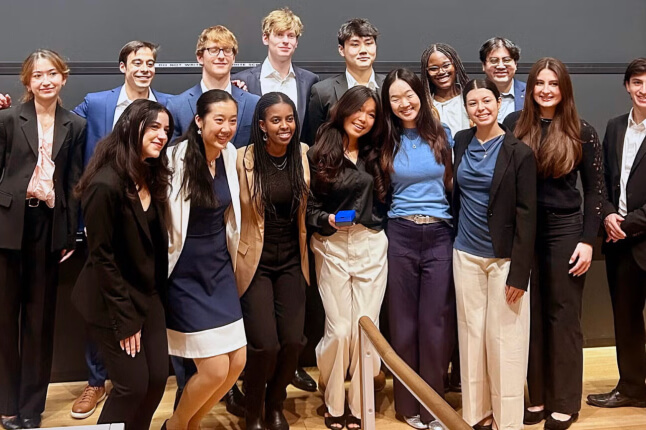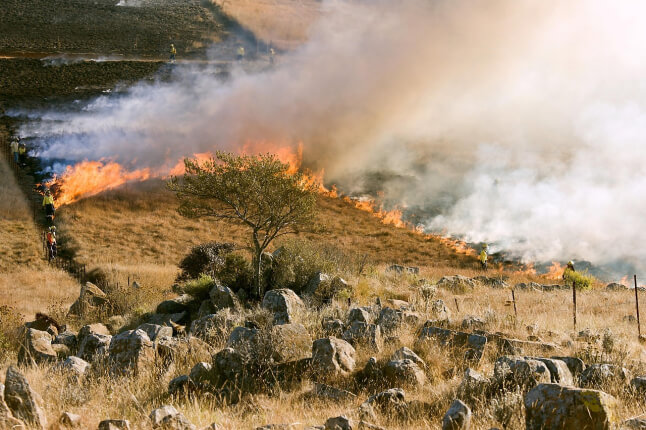News
SLIDESHOW: The local economy of Pinalito is based on agriculture. Community leader Luis Ciprian grows potatoes in this field. (All photos courtesy of Christopher Lombardo.)
The relief in Pinalito is palpable. The water is clean again.
For the past 2½ years, students in the Harvard University chapter of Engineers Without Borders have been rehabilitating and improving a potable water system in the rural town in the Dominican Republic. After the most recent visit, the students returned to campus in late August having successfully worked with the community to upgrade the water quality and distribution system.
“The residents now have a clean source of water, something they haven’t had for five or more years,” said the group’s adviser, Christopher Lombardo, assistant director for undergraduate studies in engineering sciences at the Harvard School of Engineering and Applied Sciences (SEAS). “The well that was built by a government contractor had failed; it had been improperly installed and was clogged with clay. The new, productive, and clean water well can produce 27 gallons a minute.”
When the Harvard team first arrived, the community was skeptical. By working with translators and speaking with people who lived there, the students built the trust needed to move the project forward in the most beneficial way for the town.
“From the beginning, we designed a system with the community,” said Leah Gaffney ’15, the Harvard chapter president, who had visited on two of the five earlier excursions.
“We walked around with community members and talked about water sources and options. We did an extensive analysis of options: Should we dig a new well or pipe water from the existing spring? We acted as consultants to determine the best way to go forward,” said Gaffney, who studies biomedical engineering at SEAS.
Indeed, community-driven development programs comprise the heart of the mission of Engineers Without Borders-USA, a humanitarian organization working worldwide to design and build sustainable engineering projects in full partnership with host communities. SEAS, for its part, encourages students to take advantage of such opportunities abroad.
“We want our students to be aware that although we’re teaching them engineering in Cambridge, there are many other perspectives they’ll need to consider when they go further afield — and they won’t always have access to a state-of-the-art lab,” said Fawwaz Habbal, executive dean for education and research at SEAS. “The role of an engineer is to help solve problems, to improve life. But it’s only by listening and engaging with the stakeholders that a sustainable solution can take root.”
After each field research visit, the student team returned to Harvard and consulted with engineering faculty and staff in the SEAS Teaching Labs, as well as other professionals in the Engineers Without Borders network. A technical advisory committee reviewed all of the visitors’ work.
“We also worked on education,” said Gaffney, explaining that she and her fellow students visited local schools and talked with children about water purification and the importance of good sanitation.
“I’m most proud of the relationships we have fostered in the community, and the mutual pride in the project,” she said.
Read the entire article in the Harvard Gazette
Topics: Student Organizations, Environment
Cutting-edge science delivered direct to your inbox.
Join the Harvard SEAS mailing list.



